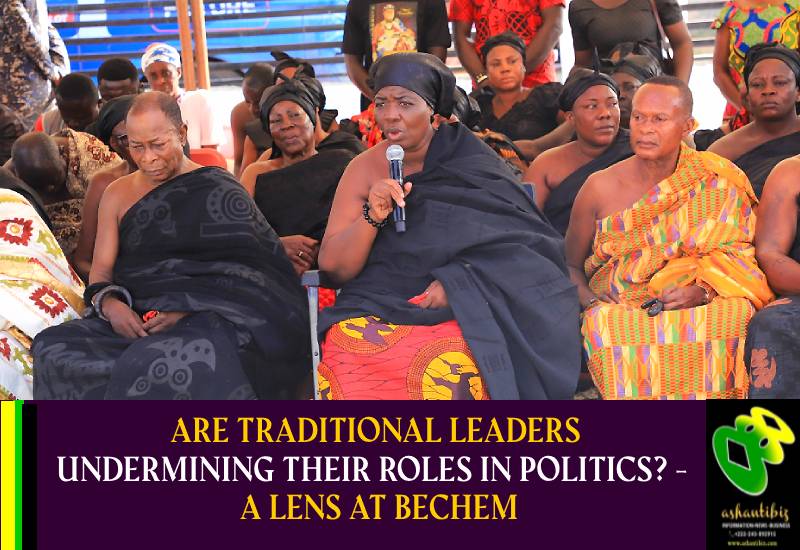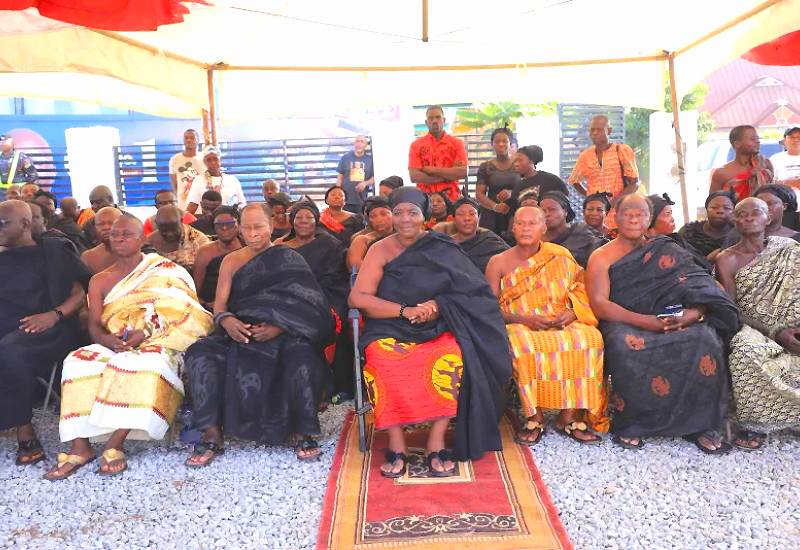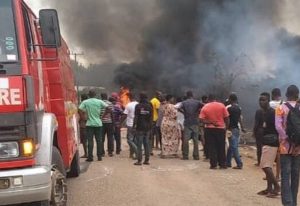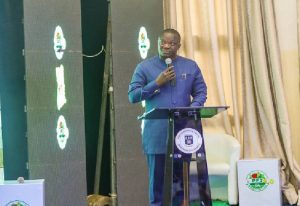By Godwin Owusu Frimpong
“Let us consider the future of Ghana and vote for visionary Bawumia – Queenmother of Bechem,” rings a call both powerful and divisive amid Ghana’s current political brouhaha. In a rare show of political endorsement, the Paramount Queenmother of Bechem, Nana Adwoapo Dwamena Serwaa II, has publicly rallied her constituents to support the presidential candidacy of Dr. Mahamudu Bawumia from the New Patriotic Party (NPP).
Welcoming Dr. Bawumia to Bechem on Friday, the Queenmother articulated a plea that resonated with the urgency of future generations, insisting that Ghanaians prioritize the nation’s welfare over partisan politics. “My fellow citizens, let us look at what is good for us as a country,” she urged. In moments like these, she positioned herself as not just a traditional figure but a recognized voice rallying for political change.
However, her endorsement ignites a larger conversation about the role of traditional leaders in political discourse. Should figures like Nana Serwaa remain apolitical, or does their personal conviction afford them the right to weigh in on national matters? “They say traditional rulers should not involve themselves in politics,” she acknowledged, “but as for what we have seen with our eyes, we cannot gloss over them.”
This statement showcases the tension traditional leaders face in the face of a politicized society. While her supporters may celebrate her boldness in a time when political chaos reigns, opponents could launch an offensive against her credibility as a neutral arbiter of culture and tradition. Indeed, her public alignment with Bawumia could open a Pandora’s box of criticism and scrutiny, with detractors arguing that traditional leaders should be sanctuaries of unity and not division.
Nana Serwaa’s move has garnered notable attention, not only for its implications regarding the involvement of traditional authorities in politics, but also for the specific impact it may have on the upcoming elections. Her call to “give Dr. Bawumia an opportunity” aligns him closely with the progress she envisions for Ghana. This also draws in the question of governance and continuity, as she made clear her belief in the Vice President’s capabilities to lead the nation.
The line between tradition and modern politics is where many find themselves grappling for clarity, and Nana Serwaa’s declaration raises challenging questions: Does endorsing a candidate betray the neutrality expected of traditional leadership? Can the cultural weight of the Queenmother’s words influence electoral outcomes? As Ghanaians approach the December polls, such realities emerge as more than mere discussions; they become essential to understanding the evolving relationship between traditional authority and modern governance.
As the political climate continues to heat up, one wonders if Ghana’s traditional leaders will tread carefully or boldly step into a realm where their influence could sway an election yet again, forever shifting the fabric of political allegiance in a nation that lies at a historical crossroads.
Godwin Owusu Frimpong





